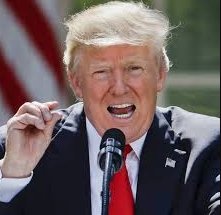
Tax Revenue Boosts Treasury but Fails to Meet City Economists’ Expectations
The UK government recorded a budget surplus of £15.4bn in January, bolstered by increased self-assessment and capital gains tax receipts. While this marks the highest January surplus since records began in 1993, it remains below the £20bn predicted by City economists and the Office for Budget Responsibility (OBR).
The positive balance contrasts with December’s £17.8bn deficit, yet the OBR noted that self-assessment revenues, which had declined during the pandemic, did not recover as strongly as anticipated. Additionally, corporation tax and capital gains tax receipts failed to reach expected levels, limiting the overall fiscal boost.
Chancellor Rachel Reeves requires a more substantial improvement in public finances to adhere to the government’s fiscal rules, which restrict borrowing and debt accumulation by the end of the parliamentary term. Her spring statement to the House of Commons on 26 March may include adjustments to spending plans to remain within budgetary constraints.
Meanwhile, the Treasury is considering increased defence spending as part of European efforts to support Ukraine, while also facing growing demands for investment in public services. Rising government borrowing costs on international financial markets add further pressure.
Despite a temporary spike in interest rates on government debt, monthly debt repayments remain high. Reeves acknowledged the necessity of securing additional funding for defence but insisted it must come from savings elsewhere in the budget.
Darren Jones, the Chief Secretary to the Treasury, responded to the figures by emphasising the need for careful scrutiny of government spending, stating that every pound would be reviewed “line by line” for the first time in 17 years. However, Labour backbenchers fear this could lead to cutbacks in planned public service investments and tighter restrictions on welfare support.
The Office for National Statistics reported that borrowing from April 2024 to January 2025 totalled £118.2bn, an increase of £11.6bn compared to the same period in the previous financial year. Debt interest payments in January alone reached £6.5bn, the second-highest for that month since records began in 1998.
Nabil Taleb, an economist at PwC, warned that rising debt servicing costs as a proportion of total revenues would leave public finances increasingly vulnerable to economic shocks. Alex Kerr, from Capital Economics, stated that January’s figures did little to ease the chancellor’s financial challenges, especially with mounting pressure on European governments to raise defence spending ahead of next month’s fiscal update.
Provisional estimates suggest self-assessed income and capital gains tax receipts totalled £36.2bn in January 2025, marking a £3.8bn year-on-year increase and the highest January revenue since 1999. However, the figure remained 10.1% below OBR forecasts.
Traditionally, the government benefits from a fiscal surplus at the start of the year, as the self-assessment tax deadline boosts receipts, with further returns expected to be counted into February.
Shadow Chancellor Mel Stride criticised the figures, arguing that Labour’s economic policies had exacerbated Britain’s fiscal challenges. He accused the government of increasing national debt through excessive spending, warning that the country was stuck in a cycle of rising inflation, growing debt, and higher taxes.










